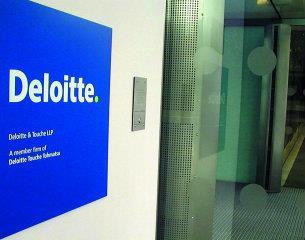
If you read nothing else, read this…
- The pressures caused by the recession, coupled with some high-profile stress cases, has made stress a more acceptable topic to talk about.
- Support for stressed employees has increased, with employers and insurers offering employee assistance programmes and other tools.
- Employers should take a robust approach to tackling stress by implementing a variety of support mechanisms and plugging gaps in insurance cover.
Dr Katie Tryon, head of clinical vitality at PruHealth, says high-profile stress cases such as that of Lloyds Banking Group chief executive Antonio Horta-Osorio, Norwegian prime minister Kjell Magne Bondevik and former Barclays head of global compliance Sir Hector Sants have helped to put stress management on the corporate agenda.
“These cases have been a real tide-changer,” she says. “It’s made it much more acceptable to talk about stress in the workplace now.”
As it has become easier to raise the subject of stress in the workplace, it has also made employers more aware of the need to tackle the problem. Eugene Farrell, executive board member of the UK Employee Assistance Professionals Association (EAPA), says he has seen an increase in take-up of stress-related training.
“Stress-awareness training is more common, but I’ve also seen more resilience training to help employees deal with stress,” he says. “This can include learning coping strategies, and related techniques such as mindfulness to help employees learn how to stay calm and objective.”
Growth of employee assistance programmes
Greater acknowledgement of stress has also led to significant growth in the number of employee assistance programmes (EAPs) in the workplace. Figures from the UK EAPA show that 13.8 million employees now have access to an EAP, equivalent to about half the workforce, and there has been a 69% increase in coverage since 2008.
Insurers have also recognised the power of EAPs, and often add them as freebies to other healthcare benefits, including private medical insurance (PMI), group risk products and health cash plans. For example, PruHealth offers an EAP alongside its medical insurance, and all members of its Vitality scheme can access online cognitive behavioural therapy (CBT).
Employers’ stress management strategies have also focused on early identification of potential problems, because this can often improve the chances of a full recovery. Matthew Judge, director at Jelf Group, says this is now a key objective for some insurance products.
“Absence management systems have become more user-friendly and will highlight an issue before it becomes a problem,” he says. “Group income protection insurers are also keen to get involved, often as early as day one, to support employees back into work.”
Early notification of absence
To facilitate this, group income protection insurers such as Ellipse and Legal and General will incentivise early notification of absence and Ellipse has incorporated an absence management system into one of its plans.
But although many employers and insurers are taking a step in the right direction in dealing with stress, more needs to be done, says Judge. “We have lost the British stiff upper lip mentality towards stress, but I don’t believe the support for people who are suffering has improved sufficiently, from either the state or the private sector,” he says. “Waiting times for CBT on the NHS are too long, making it less effective, and there can be holes in the support provided through insurance products.”
For example, free add-on EAPs will often be cut-down versions that provide a helpline and access to counselling. This removes the management information that can help an employer to identify stress hotspots, but also, because the service is free, it is less likely to be publicised within the organisation. And if it is included with a product that is offered to a subset of employees, it will be almost impossible to promote.
The EAPA’s Farrell has also noted possible issues with insurance cover for stress. “The products are in silos,” he says. “An EAP offers a relatively short model, which will help with a lot of stress-related problems, while the psychiatric benefit on medical insurance is more suited to serious mental health conditions. It would be better if we could merge all the benefits together.”
Further counselling sessions
As an alternative, some EAP providers and employers are open to extending their support model, either adding, or paying for, further counselling sessions where necessary.
Jelf Group’s Judge says he would like to see changes made to medical insurance to make it more suitable for a broader range of psychological problems. “It would be really beneficial if insurers included a triage system, enabling employees to be directed to the most appropriate form of care,” he says.
While there is room for more innovation around the stress-related products on offer, there is also more that employers can do to support employees suffering from stress. Farrell says it is about building a robust approach, including training line managers to identify warning signs, promoting EAPs and launching wellbeing initiatives that promote healthy lifestyles. “There isn’t a simple solution; employees respond to different things,” he says. “The broader the range of support, the better.”
Better work-life balance
Allowing employees to work flexibly to achieve a better work-life balance, particularly if they have caring responsibilities, can go a long way to preventing stress.
Flexible working can also enable staff to take part in activities that may help to ease their stress levels, such as taking part in sports or going to the gym.
Although employers have come a long way in their approach to managing stress in the workplace, it is also important that they look beyond it to mental health, says PruHealth’s Tryon. “The real challenge for business is mental health,” she says. “Significant progress is being made with initiatives such as Time to Talk Day, but employers really need to build on this.
“About a quarter of people in the UK will have a mental health problem in any one year, so it is essential that employers keep up the good work.”
| Estimated rate of self-reported stress, depression or anxiety caused or made worse by work, by age and gender | |
|---|---|
Employees | Rate per 100,000 employed 2011/12 |
All employees | 730 |
All male employees | 540 |
All female employees | 960 |
All employees 16-34 | 580 |
Male employees 16-34 | 480 |
Female employees 16-34 | 710 |
All employees 35-44 | 830 |
Male employees 35-44 | 540 |
Female employees 35-44 | 1160 |
All employees 45-54 | 920 |
Male employees 45-54 | 710 |
Female employees 45-54 | 1130 |
All employees 55+ | 670 |
Male employees 55+ | 420 |
Female employees 55+ | 970 |
Source: ONS Labour Force Survey
Case study: Deloitte

Pressure is an integral part of the working week for many of Deloitte UK’s 12,000 employees, but, while many people flourish in such an environment, the organisation’s head of human resources, Stevan Rolls, is keen to ensure it does not lead to any unpleasant consequences.
“People do enjoy the challenge this environment brings, but we need to ensure they are able to manage the pressure and prevent it having a negative impact on their health,” he says.
To do this, Deloitte provides its employees with courses to help them build robustness. For example, all partners are sent on a course called Sharpening Your Edge, where they learn psychological, nutritional and physical strategies to sustain high performance under pressure.
Stress management is also an important part of Deloitte’s broader wellbeing agenda. This includes access to on-site gyms, doctors and sports and beauty therapists. “We have also set out to create a flexible working environment,” says Rolls. “Our focus is on output rather than input, so as long as employees achieve what is required, we don’t really mind how, when and where they do this.”
As well as supporting flexible-working arrangements, earlier this year Deloitte introduced a new initiative, Time Out, to help staff strike the right work-life balance. The scheme enables employees to take up to four weeks’ unpaid leave, if required.
These initiatives are underpinned by an open approach to mental health problems which is championed by former Deloitte partner John Binns, who is now a trustee at charity Mind. Rolls adds: “By encouraging senior employees to talk about mental health issues, we have created a culture where employees know it’s okay to talk about stress.”



































